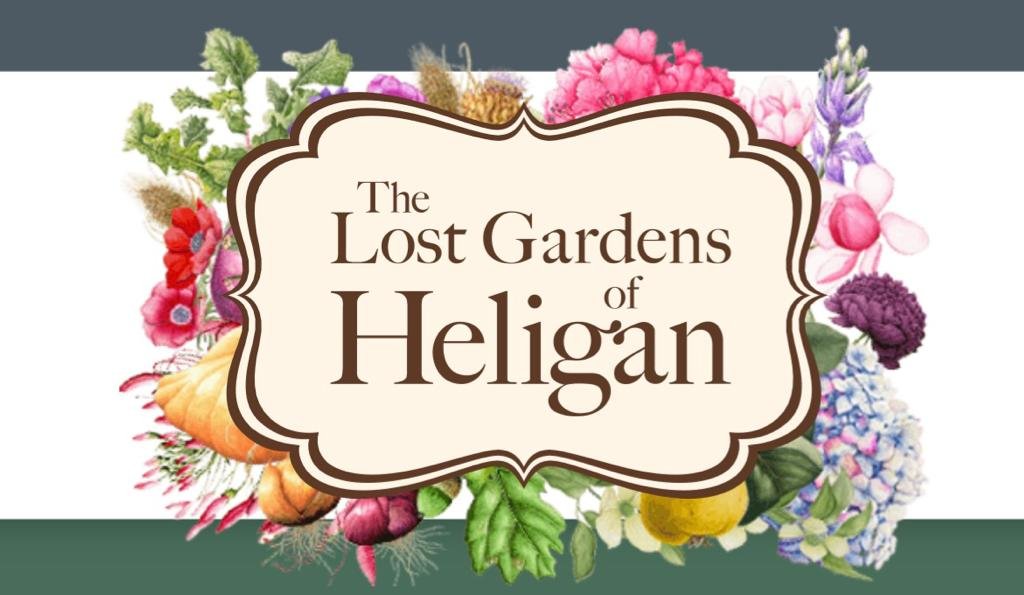The Lost Gardens of Heligan: A Legacy of History, Challenges, and Innovation
Nestled along the rugged coastline of Cornwall, Lost Gardens of Heligan stands as a testament to time, evolving through centuries of change, loss, and renewal. With a history spanning over 400 years, the gardens have witnessed both grandeur and hardship, from their meticulous development in the late 1700s to the early 1900s to the devastating impact of World War I, which left them abandoned. Today, Heligan faces a new battle—an invasive weed threatening its productive gardens. However, an innovative experiment with Bokashi composting offers hope for a sustainable and efficient solution.
A Garden Shaped by History
The gardens, a jewel in Cornwall’s landscape, were carefully cultivated over centuries, with their present form emerging between the late 18th century and 1910. However, like many historic estates, their fate took a dramatic turn during World War I.
The war drained the estate of its workforce, as young men who had once tended the gardens left to fight. Among them was William Robin Sky, whose story encapsulates the deep human cost of war. His last recorded visit home tells of him saving a small bird, his hands trembling in church before he returned to the frontlines. These poignant moments remind us how history is not just about places but about the people who shaped them.
A Modern Battle: The Invasive Weed Problem
Fast-forward to today, and Gardens Pelan faces a new challenge: a relentless invasive weed. The issue is particularly severe in the productive gardens, where it has reached unprecedented levels. As one of the team members put it:
"It's the worst like I have not seen in the flesh until today."
Controlling invasive species in a historically rich and ecologically sensitive environment is no easy task. Conventional methods can be time-consuming and labor-intensive, prompting the team to seek a more sustainable approach.
Bokashi : An Experimental Approach
In response to the crisis, the gardens' caretakers have turned to Bokashi composting—a process that accelerates organic decomposition through microbial fermentation. The team has partnered with experts to explore whether this technique can help manage the invasive weed more effectively while reducing labor demands.
Despite no guarantees of success, there is cautious optimism. The philosophy is clear:
"We’re not guaranteeing anything... but if we can control the controllables, I’m hoping we’ll get some results."
The Bokashi process is being trialed alongside existing methods to assess its effectiveness. If successful, it could provide a faster, less labor-intensive, and more sustainable way to reclaim the gardens from invasive species.
Understanding the Bokashi Process
Bokashi mimics natural decomposition but in a controlled and accelerated manner. The process involves:
Layering organic materials, ensuring a balance of green (nitrogen-rich) and brown (carbon-rich) sources.
Maintaining optimal moisture levels to support microbial activity.
Encouraging fermentation to break down materials into nutrient-rich material.
Unlike traditional composting, Bokashi works anaerobically, making it faster and potentially more effective against tough weeds.
A Shift in Gardening Philosophy
Beyond the immediate challenge, the team at Heligan is also rethinking traditional gardening practices. Recent years have shown that in some areas, nature’s own processes can be just as effective as human intervention.
"Certain areas had gone a little bit back to nature, and we were like, you know what, we may have overguarded this. This is actually really lovely."
This shift acknowledges that gardening isn’t just about control—it’s about working with nature, not against it.
An Invitation to Witness History in the Making
The team is keen to share their journey with the public, inviting visitors to witness firsthand the restoration efforts and the Bokashi experiment in action.
"Come and see the amazing team down here and what they’ve been doing."
A follow-up visit is planned in the coming weeks, where the effectiveness of the Bokashi method will be evaluated. Will this experimental approach prove to be a game-changer for Gardens Pelan? Time will tell.
Conclusion
Heligan is more than just a historic estate; it’s a living, evolving landscape that continues to adapt to modern challenges. From wartime abandonment to ecological resilience, its story is one of perseverance. The introduction of Bokashi composting represents an exciting new chapter—one that could redefine sustainable gardening practices not just for Gardens Pelan, but for other historic gardens facing similar struggles.
Stay tuned for updates on this groundbreaking experiment, and if you’re in Cornwall, don’t miss the chance to experience this unique journey in person.



